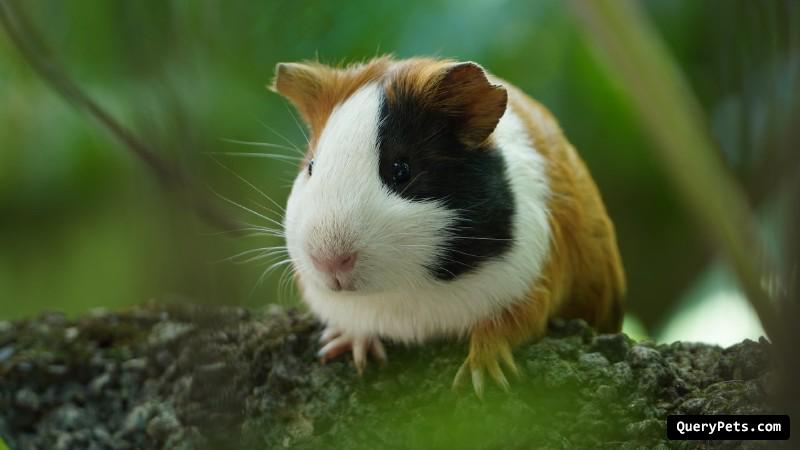Should I Be Worried If My Guinea Pig Bites Me?

Guinea pigs, also known as cavies, have become popular household pets due to their charming, gentle nature, and the relative ease with which they can be cared for. These cute rodents, often characterized by their expressive eyes and soft coats, are highly social creatures that usually exhibit docile behavior.
However, like many animals, guinea pigs also have their own unique character traits and may express themselves in various ways, including biting. Biting, while not a common behavior for every guinea pig, is sometimes observed and can be a concern for owners.
The primary question we’ll be exploring in this article is: Should the owner be worried about guinea pig bites? The subject is worth examining in detail, as understanding the underlying reasons and responses can lead to a more harmonious relationship with your pet.
Should I Be Worried If My Guinea Pig Bites Me?
No, in general, a guinea pig biting you should not be a significant cause for alarm. Bites are usually a form of communication or a reaction to a specific situation rather than a sign of inherent aggression. Understanding the context and type of bite can alleviate concerns and guide appropriate responses.
Guinea Pig Behavior
Why Guinea Pigs Bite
Understanding why guinea pigs bite involves a multifaceted exploration:
- Feeling Threatened: If the guinea pig feels cornered or endangered, it may bite defensively.
- Communication: They may use a bite to express discomfort or signal that they need something.
- Exploratory Biting: This is often harmless and is a way for guinea pigs to understand their surroundings.
- Underlying Health Issues: Medical problems, such as dental issues or skin irritation, might provoke biting.
- Social Dynamics: The intricate social behaviors of guinea pigs include biting to establish dominance or bond with fellow cagemates.
Common Situations That May Lead to Biting
Understanding when biting may occur involves recognizing various factors:
- Handling Techniques: Improper holding or sudden movements might scare the guinea pig and lead to a bite.
- Environment: The living conditions, including temperature, cleanliness, and space, can affect their overall wellbeing and influence biting behavior.
- Other Pets: Introducing new pets or housing them with other aggressive animals might lead to stress and subsequent biting.
Assessing the Severity and Context of a Bite
Recognizing Different Types of Bites
Identifying the nature of a bite helps in understanding and addressing it.
- Aggressive Bites: These bites are usually harder and might signify serious discomfort or a challenge to their dominance.
- Fear Bites: These occur when the guinea pig feels scared or overwhelmed.
- Exploratory Nips: These are often gentle nibbles more out of curiosity.
Physical Consequences of a Bite
A guinea pig bite typically doesn’t cause serious harm but should be treated properly.
- Appearance: It might appear as a minor scratch or puncture.
- Infections: If left untreated, an infection might develop, so proper cleaning is vital.
- Medical Complications: If the bite is deep or becomes infected, professional medical help should be sought.
- First Aid: Immediate care involves cleaning the wound with soap and water and applying an antiseptic.
How to Prevent and Respond to Guinea Pig Bites
Training and Socialization
Proper training and socialization can prevent most biting incidents.
- Techniques: This includes gentle handling, using a calm voice, and understanding their body language.
- Positive Reinforcement: Rewarding good behavior reinforces trust and bonds.
- Handling Tips: Always let the guinea pig come to you and never chase or grab it abruptly.
Responding to a Bite
If bitten, here’s how to respond:
- Immediate Response: Clean the wound and assess the situation.
- Understanding the Cause: Was it fear, curiosity, or something else? Understanding this helps prevent future bites.
- Consulting Professionals: In persistent cases, consulting with a veterinarian or pet behavior specialist is wise.
Conclusion
Guinea pig bites, though startling at first, should not be a cause for significant concern. The relationship between guinea pigs and their owners thrives on mutual understanding, empathy, patience, and education. By recognizing why biting occurs and how to respond, owners foster a loving and trusting relationship. The focus should not be on fear but on embracing the delightful quirks and unique personalities of these adorable pets.
The final thought is that understanding, compassion, and education are key to enjoying a harmonious relationship with your guinea pig and turning biting incidents into opportunities for growth and connection.
